Ep. 85 5 Monthly Habits of a Sustainable Teacher
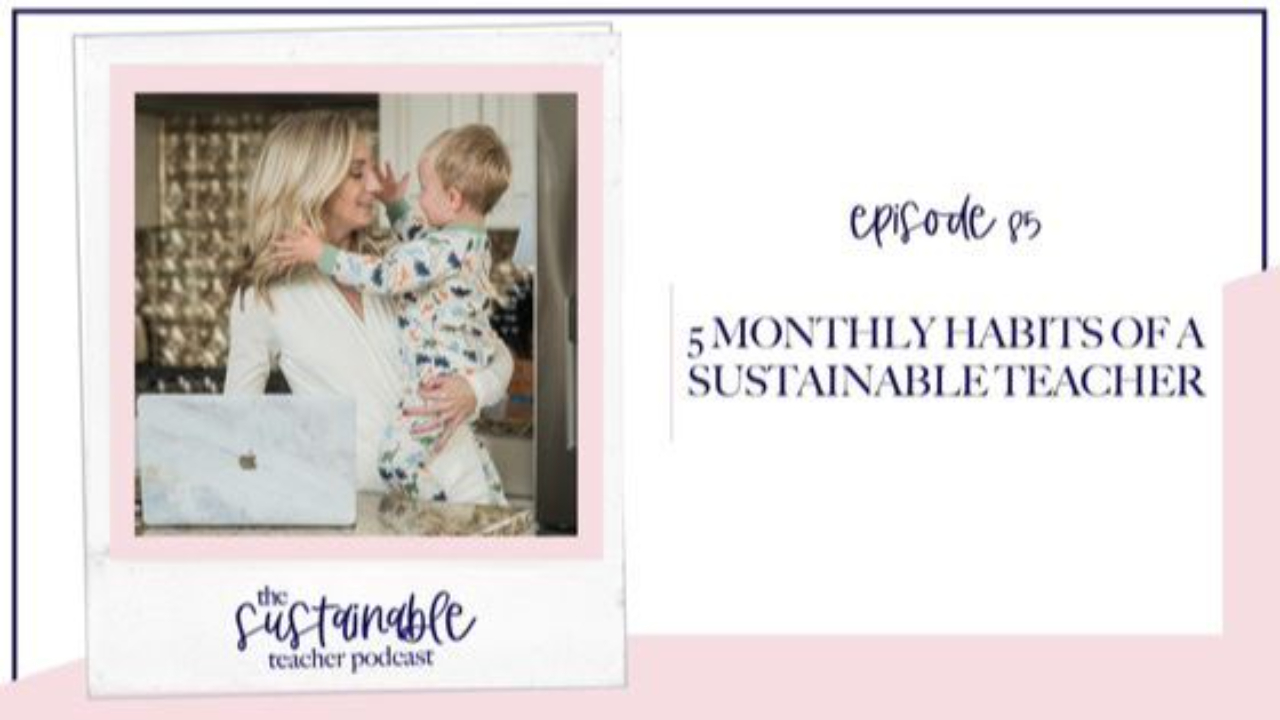
*Note that these episodes are designed and written as podcast episodes and therefore created to be listened to, which I encourage you to do on your favorite podcast app or by clicking play above.
Apple Spotify Google Amazon Stitcher
**This post contains affiliate links, meaning if you purchase from some links in this post, I get a portion of the amount in order to keep the lights on at Teach On A Mission and to feed my family. I appreciate your support, and want you to know that all of my recommendations are based on items I have used, loved, and have served my own sustainability as a working parent.
Just as it was true in my last episode, it’s true here too. These 5 habits are not rocket science, not earth shattering, but they are slightly different from other tips I’ve seen because they aren’t just for teachers, and they also aren’t just for anyone. These tips are for educators who are managing all the things, and want to build some habits into t...
Ep. 84 5 Daily Habits of a Sustainable Teacher

*Please note that these episodes are designed to be listened to. I encourage you to tune in on your favorite podcast app or by clicking play above.
Holy moly! I recorded this episode in mid-January and am not publishing it until mid-February - woah! But here’s the thing, at Teach On A Mission, we are nothing but #reallife, and sometimes deadlines aren’t met and life takes over. So when you hear me say it’s mid-January, just know that I am completely wrong, but hopefully what I share still resonates with you.
In this episode we get super practical! Share this episode with a teacher who needs to hear the message that their sustainability is important and a priority!
These tips are not rocket science, but they are ones that have allowed me, as a working, teacher mom, to manage all the things in ways that are slightly automated, removes the need to think about it
Goes with the new motto I’m adopting in my life and I think all teachers should too - Think about it, plan the system ...
Ep 82 Being More Intentional in 2023 | A Teacher's Year-End Reflection
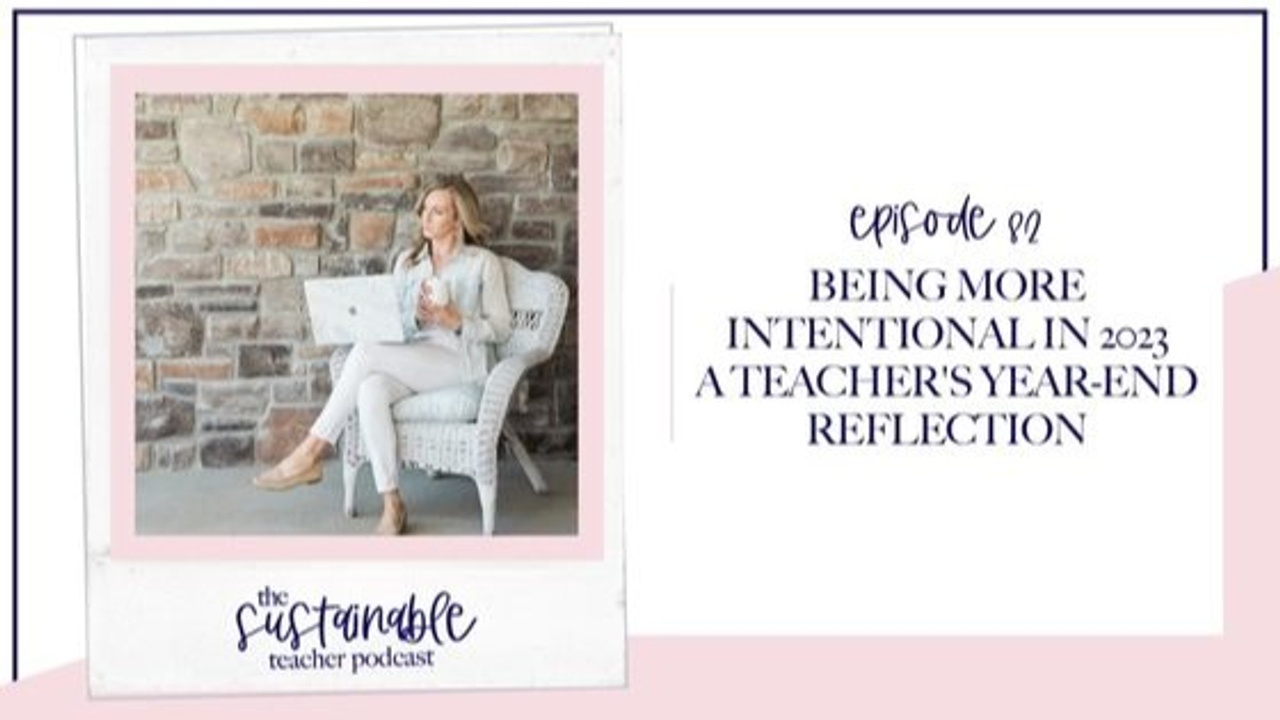
**Holy cow guys this is a long one, but, I have to admit, I really really loved recording this. So, if you have to listen in chunks, that’s the beauty of a podcast, just pick right back up where you left off and it even rewinds it a few seconds for you when you’re able to click play again.
Here’s to a more intentional 2023, and a glimpse into my year-end reflection and planning process. I hope you find it helpful.
As promised, here is a link to that year-at-a-glance calendar I grabbed on Canva - it’s now a template you can use.
SUSTAINABLE TEACHER SHOW NOTES: https://www.teachonamission.com/blog/being-more-intentional-in-2023-a-teacher-s-year-end-reflection
SUSTAINABLE TEACHER FB COMMUNITY: https://www.facebook.com/groups/sustainableteacher
FULL FOCUS PLANNER: https://www.teachonamission.com/planner
At the time this episode will air, we’ll be up to our eyeballs in the Christmas season - which I absolutely love. I’m the Christmas freak. -Remember 10 or so years ago t...
Google Draw for Classroom Handouts & Activities | A Teacher Tutorial

(Hold up big binder) - This right here represents what my students’ binders would look like at the end of each school year after having taken my class where we spent everyday either taking notes or completing practice and application activities and then storing them in this binder so they had access to all of it when it came time to prepare for their end of the year or end of course exam.
Drop it on desk - loud noise, shaking camera
Whether you teach little babies in elementary or big babies in high school - and I mean that in a lovingly, motherly way - you’ve experienced the drag and drop. Circa 2012 ish drag and drop became a major soft skill for all students starting at about age 2 when new age testing dropped into our lives - pun intended.
And when we drag and drop on paper, other wise known as literally cutting and pasting, not digitally cutting and pasting, here’s what happens….Have cut and paste activity and do some cutting and scissors and paper everywhere. STRESS!
Now,...
Using Google Forms to Track Student Work | Teacher Tutorial

Raise your hand if you’ve ever emailed yourself information pertaining to a student so you were reminded of it later or it was at least documented somewhere that existed outside of your brain?
Raise your hand if you’ve ever had a pile of paper rubrics you completed after some student performance-based work that you then needed to add into your online grade book?
Raise your hand if you’ve ever been asked “well, did you call the parents?” when in a meeting about an issue with a particular students’ performance or behavior.
I don’t know about you, but to me that seems like, and for me was at some point, a whole lot of physical and mental clutter in the forms of paper and unorganized thoughts I needed to recall at any given and very important moment.
I have a solution for you.
In today’s video I’m not just going to talk about “How to use Google Forms in your classroom” - nope, we’re going to get real specific and talk about how you can use Google Forms for YOU, not your students an...
Ep 78 Guess Who's Back... Back Again
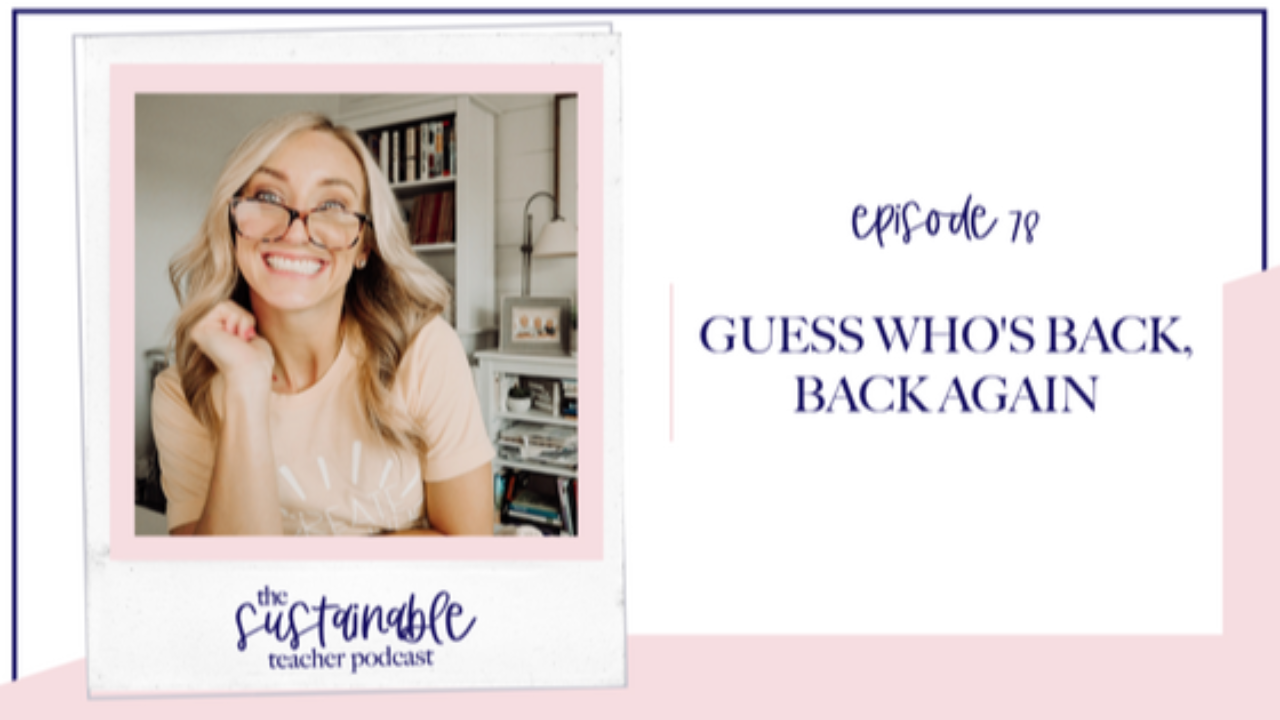
Guess who’s back… back again?!? Ha - I bet every millennial listening to this right now is finishing that lyric, please know you are my people!
Hey all! I am back after a much needed, but not anticipated hiatus from all things Sustainable Teacher Podcast, and in this episode I’m going to share what in the world has been going on here in our world that has kept me away, what I think about it, and what this space is going to look like moving forward. Because, you know, I’ve learned some things.
So if you are here for it and haven’t yet, please share the love by following my podcast, giving it a review telling me what you love about it, and that will help me know how to best serve you on this platform I love so much.
Alrighty, let’s get to it.
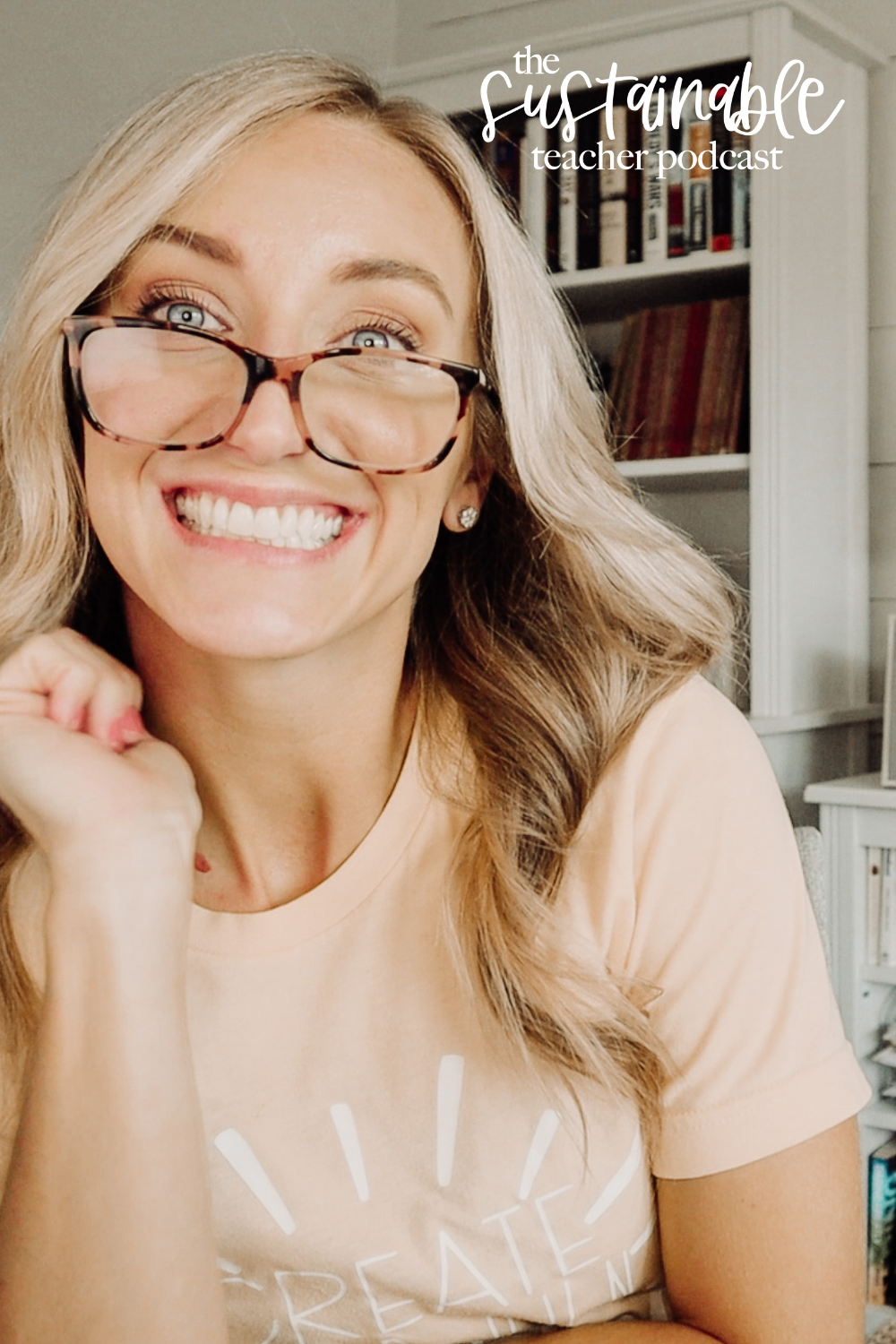
The Sustainable Teacher Podcast is Back!
- How long it’s been - last episode was June 16th
- What’s been going on

- What I think about it

- What’s the plan moving forward - podcast won’t be scripted, need to share more me in a way that is ...
Batch Planning: Using Frameworks to Take Back Your Life Outside the Classroom! with EBAcademics
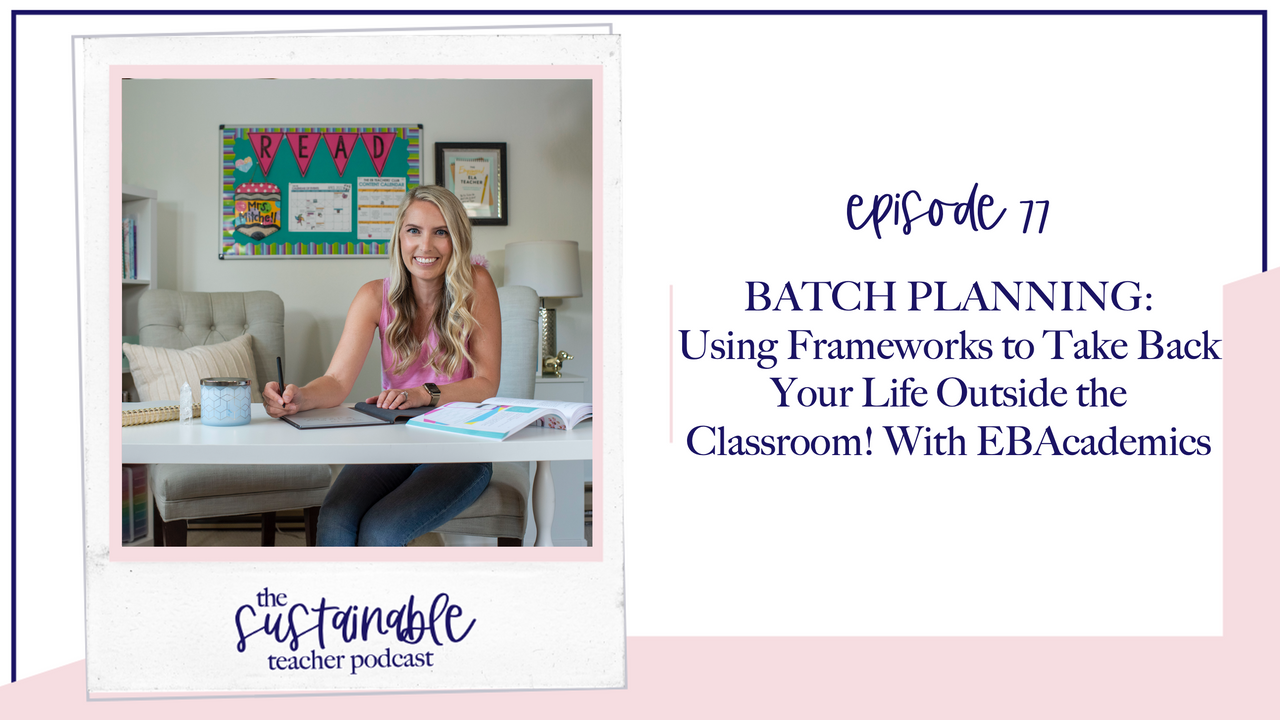
Welcome back to the Sustainable Teacher Podcast, I am so excited to be welcoming a special guest on this episode, and it is Caitlin Mitchell of EBAcademics, a former high school ELA teacher turned middle school ELA Teacher supporter through her business alongside her business partner Jessica.
I’m recording this quick intro here after having interviewed Caitlin already and I’m so excited for you to tune in and hear what she has to share with teachers as her number one piece of advice and number one strategy really for building a more sustainable teaching-life, which is batch planning. She even shares about an upcoming batch planning event they are offering teachers, so be sure to head to the link where you’re listening to learn more about that.
Let’s get right to it, here is Caitlin Mitchell with EBAcademics.
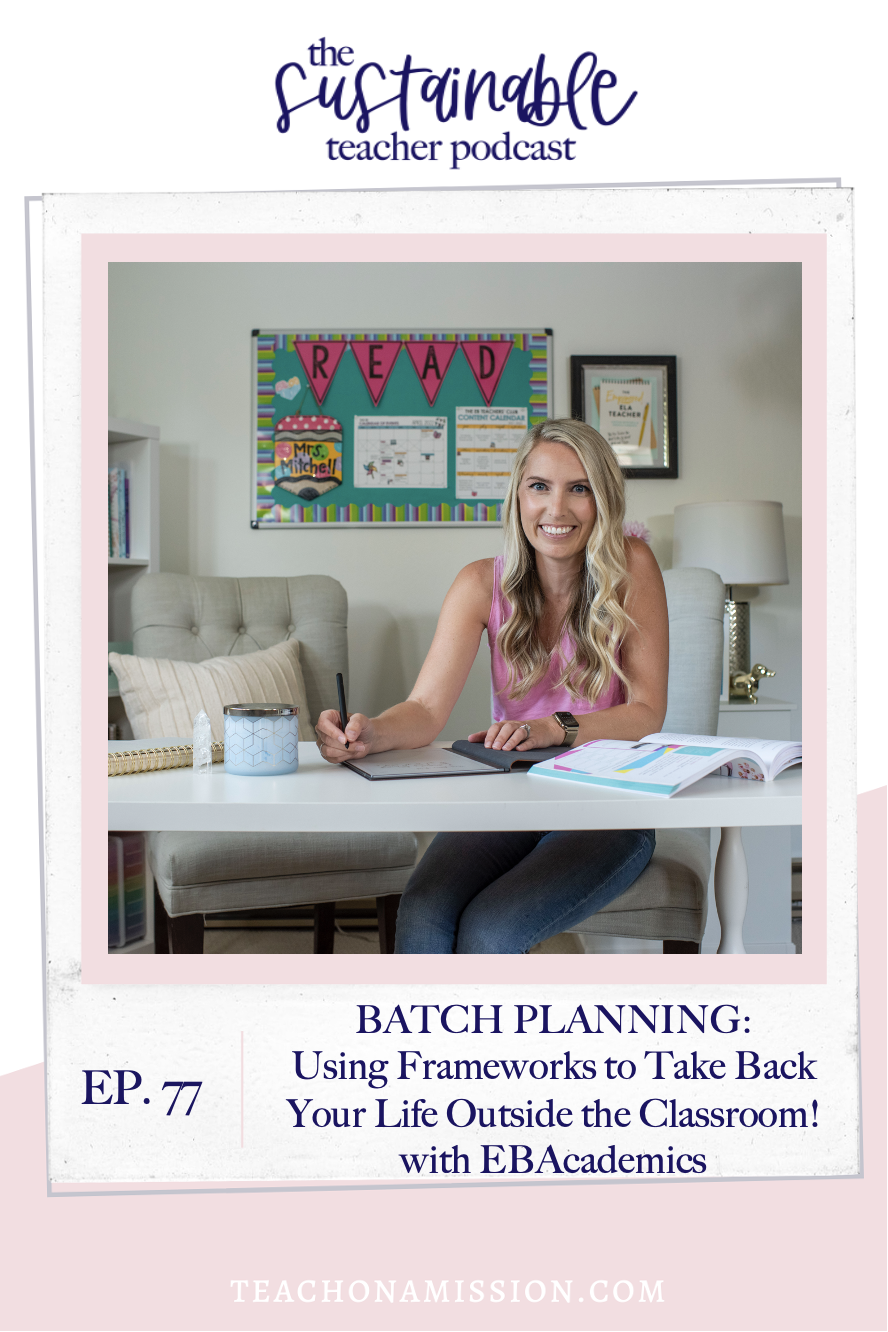
Mandy: Hello teachers. And welcome back to the sustainable teacher podcast. I am so excited to have Caitlin from EB Academics with us today to talk about really what is h...
How Flipping Your Classroom Helps Overcome the Game of Grades
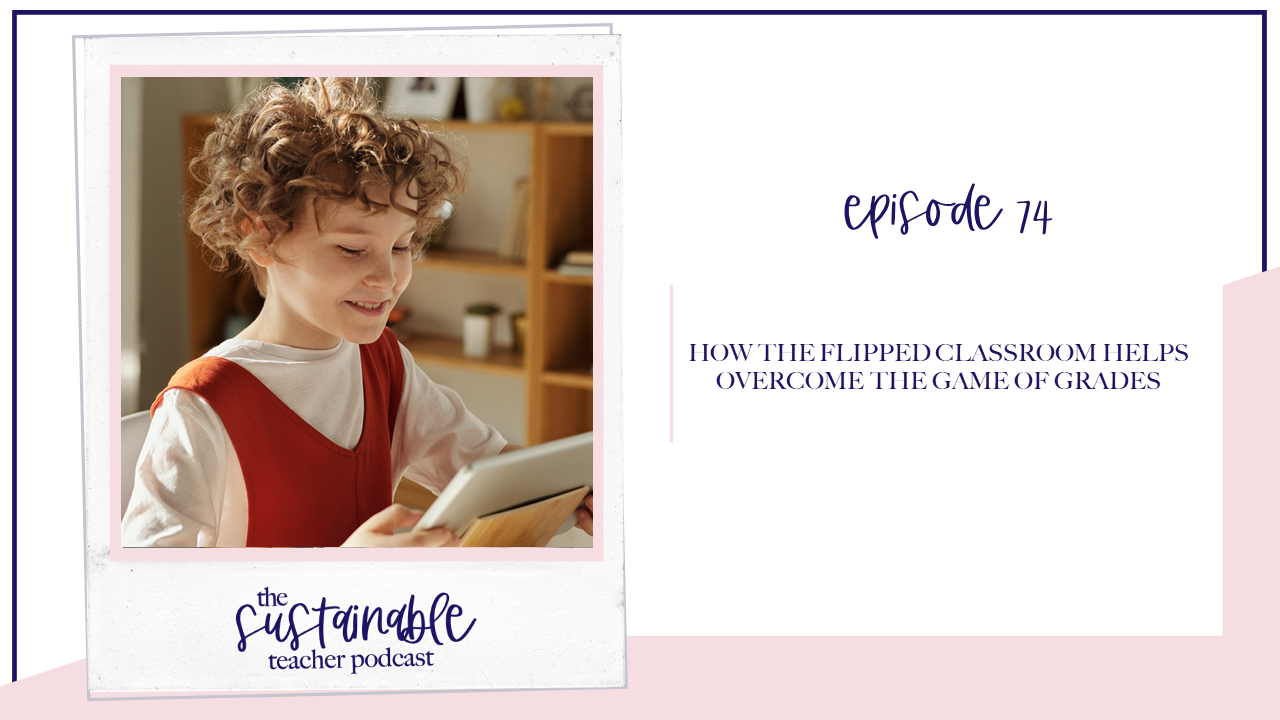
Oh, the game of grades. It’s the toxic consumption of our students' attention only on what grade they are paid with for every little move they make in your classroom rather than on the experience of learning that happens in their brain while a student of yours.
It’s as if you have to pay your students in the currency of grades for any “work” they do in your class, otherwise it won’t get done. As if the work getting done is the goal - NO! It’s not! The learning that happens while doing the work is the goal, and yet our students can’t take their focus away from the work.
So how do overcome this game of grades? How do we make the focus of our classroom on the learning that happens rather than the “work” that leads to grades?
I’ve actually addressed this topic already in episode 30 titled Overcoming the Game of Grades with Your Students. So that episode is very much a precursor to this one. Although it’s not required to listen to episode 30 before proceeding with this one, it’...
How the Pandemic has Changed Our Students and How Teachers Can Respond
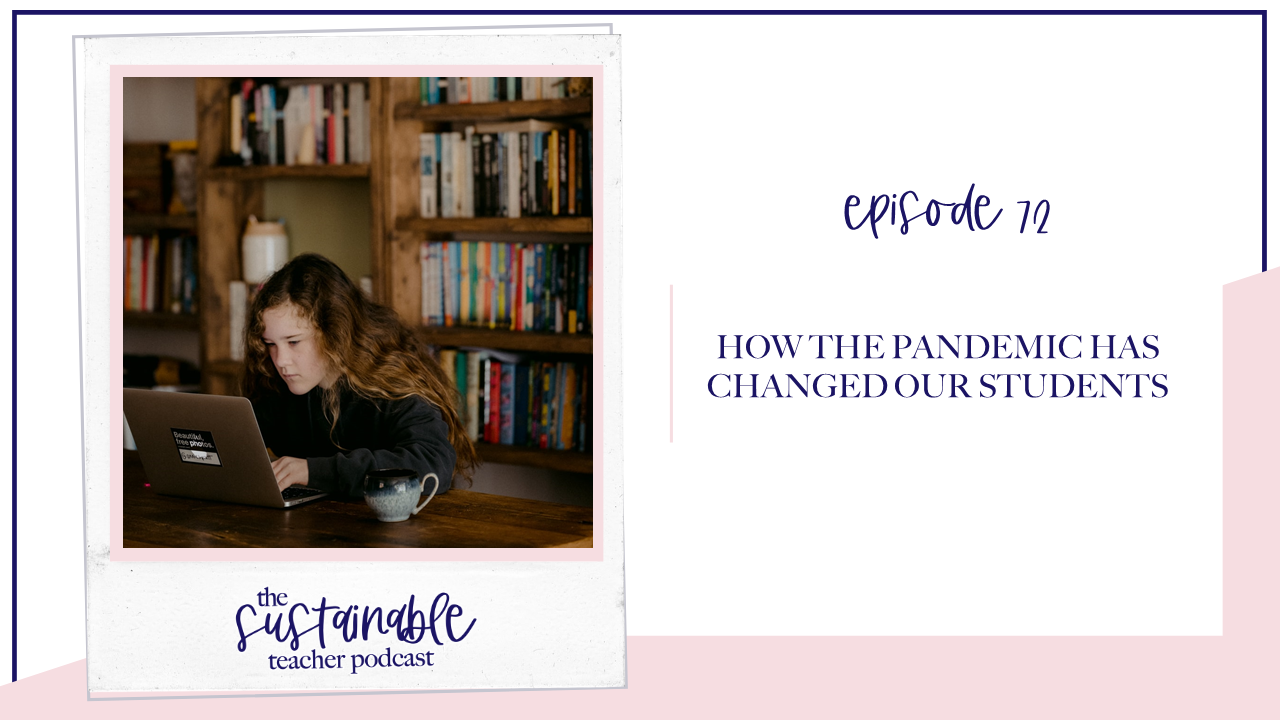
The pandemic took all the routines and understandings about school, shook them up in a paper bag, and spit them out with no semblance of what they once were.
At least that’s how some of our students are now behaving.
With student apathy and absences on the rise as expectations and stakes for students and teachers remain the same, we are working through trying times in education.
Education is different. Our students are different. And if we don’t respond to how our students have changed, we will not be as effective with them in our classrooms.
We must change with our students but in a way that does not sacrifice our evenings and weekends to do so. I’m all for changing with the times and responding to the ever changing needs of our students, but I believe it is absolutely contradictory to the system’s success if we do so at the sacrifice of our teachers’ well being. And requiring that they do it all without support will lead to the end of education as a whole because teachers w...
The No. 1 Thing You Need to Flip Your Classroom
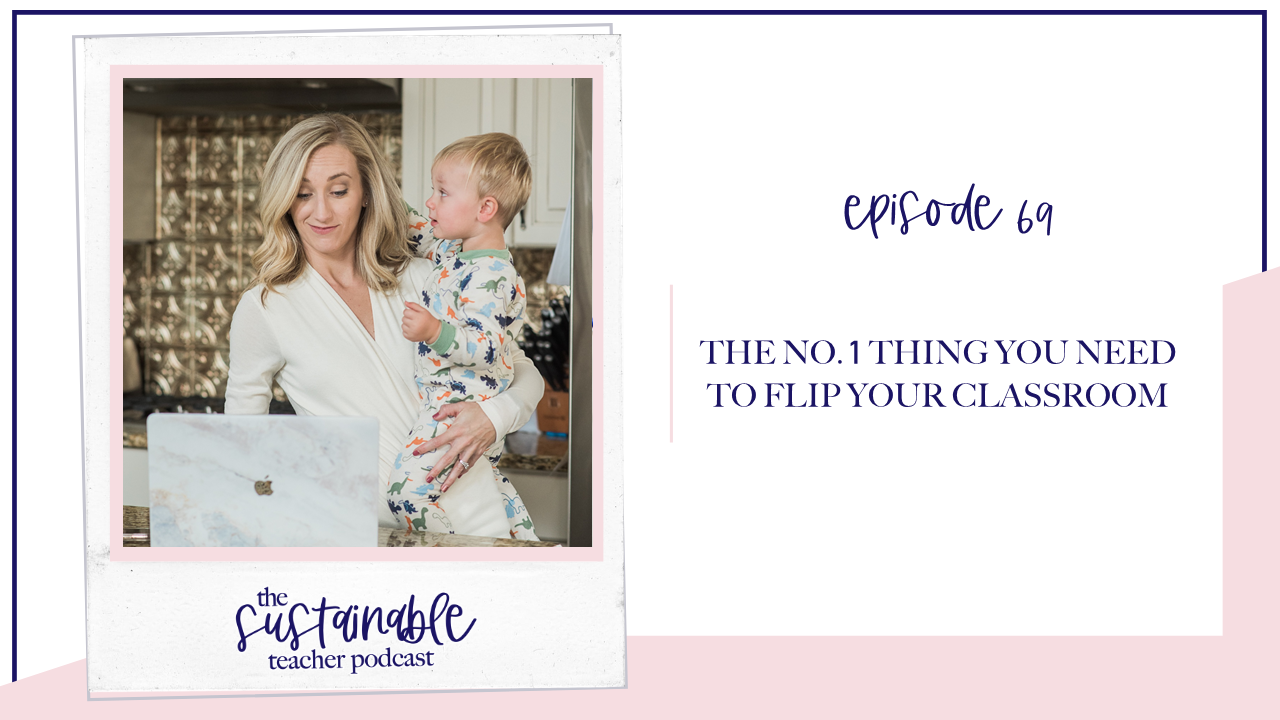
The most common question I get from teachers about making a more sustainable classroom or flipping their classroom is “Where do I start?”
You may be asking yourself this question before even considering if flipping your classroom is something you want to do, and I think you are absolutely justified in doing so because you want to know if it will be worth your time.
Well, when I answer this question, and what I’ll lay out for you in this episode is the fact that how you start your classroom is not just the answer to how you get started with step one, it’s also the exact thing you should be focusing on for each and every step you take and decision you make in your flipped classroom.
What that means is that when you take this first step toward flipping your classroom, you’re also helping your future self by making each and every other step in the flipping process that much easier to take - saving you time and headache in the process.
After listening to this episode you’ll have tak...


